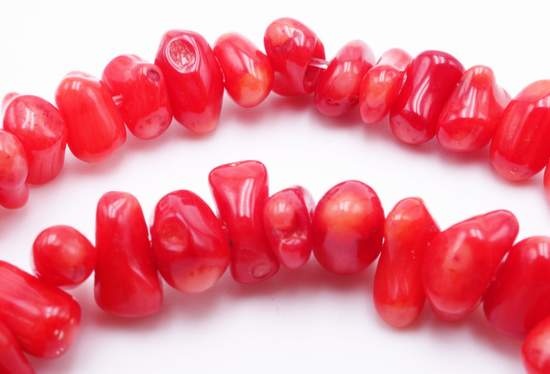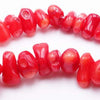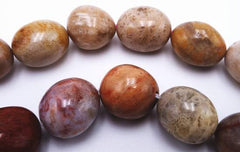110 Seductive Red Orange Sea Bamboo Coral Small Branch Beads
Product Code: nor609
Have a question?
|
Price is for 16 inch of these bright colour beads.The beads measures from 7mm x4mm to 9mm x 4mm the largest bead . There are about 111 beads in the string.
These beads are ideal for spacing in your jewellery project.
Coral is a natural water-related bead that will sex-up your summer jewellery! What Is Coral History Coral For Jewellery Coral usually ranges from white to red, and it grows in branches that look like underwater trees. Red, pink, and white corals are usually dense, while sponge and blue corals have small air pockets and interesting spotted patterns. Most coral for jewellery comes from the China Sea off Japan and Taiwan. Coral reefs in the South Pacific like the Great Barrier Reef grow a different species. The price of coral remains low only because of stockpiles from up to 30-years ago. However, due to over-harvesting and environmental damage, coral is becoming rarer, and natural red coral is very expensive. Most red coral sold today has been dyed. It's quite easy to tell this on bold red coral beads, but the pink and blue corals are often color enhanced as well. Fossil Beads |













 No Internet?
No Internet?




